PART I
ROUTE 2, GOLDEN POND, KENTUCKY(George Harold Fulks)
When Carie Atlantic Gertie Dell Pinegar Fulks of Route 2, Golden Pond, Kentucky walked onto her front porch to sweep with her home-made broom, I would sometimes see her scratching her nostrils. Then with a certain twinkle in her eyes, she'd say to Aunt Avel, Uncle Herbert, and me: "My nose will not stop itching. We'll
have company today for sure." We'd glance in every direction for a time, hold open our mouths with expectation and wonder when and whom. Do you think they'll stay long? That's one thing I remember well about Grandmother Carie.
She would be the first in the household to arise. If the day was frigid, she would light a fire in a wrought-iron cookstove and into a fireplace located in her living room. The woodburning cookstove would become hot enough for her to prepare breakfast for all in her house. It would be
a meal fit for a man or growing child. Her breakfast would be the most savory in the world.
<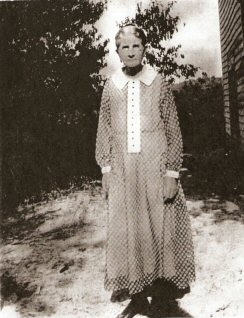
SARAH ELIZABETH DEPRIEST(Mother of Carie Dell Pinegar Fulks)
See opening photo-image/Old Ironton School, 1900
Benjamin Franklin Pinnegar and Sara Elizabeth Depriest had six children. The corrected date for the death of Benjamin Pinegar is January 3, 1887. Their children were:(1) Deaner Idail<2-2-1878..3-1903>;(2)Vollie Ira<4-15-1880..5-6-1901>; (3)Nay Dyer<10-14-1884..5-9-1962>; (4)Josephene<1-25-1886..10-8-1950>; (5)Carie Atlantic Gertie Dell<3-20-1888..1-13-1959>; (6)Lalus Martin<6-17-1890..4-18-1961> Thanks to
"The Randolph Depriest File" for this corrected and more accurate information.During a conversation with Sister Martha Dorcas Fulks Hallman on
June 18, 2009, information was gained that Vollie Ira, aged 21 in 1901 deceased as a result of tuberculosis. A photo of Vollie Ira Pinegar is in the possession of Martha Dorcas Fulks Hallman.That photo might be placed here.
From scratch,Grandmother would prepare the dough for homemade biscuits and fried-apple tarts; perhaps a dozen of each.After these were placed on the breakfast table, she would slice a generous supply of her own hickory-smoked, sugar-cured ham. Then she would fry the hamslices in lard. Grandmother's sugar-cured ham was a special pleaser for all of us. She could have made a good living by curing hams or cooking for a restaurant."That's the best ham ever made," my dad would say.
Complimenting those biscuits and appletarts were other hunger pleasers. Palate toppers were: molasses, coffee and eggs gathered from her own hens that romped and fed all day in the yard.(Yes, there was chicken shit in many places where it was not wanted.) I clearly recollect that horse and houseflies swarmed excessively about the farms of Western Kentucky. DDT and the flyswatter were always close at hand.
Then my grandmother would release and give an order to Jack, a black and white shetlie. With a command rendered softly, gently, and lovingly: "Jack! Go get Trixie and the cattle, and drive them into the south pasture."
Jack would race happily across a gravel road and pull a wooden latch securing a barnlot gate. Exiting through that barnlot gate were Trixie, an appaloosa, and twenty or more cattle. Also running ahead and barking at their heels if they tried to stray, Jack would unlatch another gate and lead them into pasture where he would remain with them for a time. After just a while, we'd find him napping on Grandmother Carie Pinegar Fulks' front porch.
Until darkness neared, the farm-animals had access to hay, grass, and the cool and glistening water of Crooked Creek. Winding majestically among the shadows of Jennie Ridge, that stream of running water was a special place to be. Located some three-hundred-yards towards the south, that creek was bordered on each side by the shade of willow and sycamore and contained clear, cool clear water. Jack would be certain that all the animals reached pasture safely. Opening both gates and entering into pasture with Trixie and the cattle was a routine that Jack performed expertly. It was a special treat for Grandmother and me to watch a small dog
display such a splendid example of training and intelligence.
As for Jack, the remainder of his day was leisure until the time came to turn the livestock back into the barn lot near dusk. What was leisure for Jack is commonly known as a dog's life- a series of naps and awakenings for explorations and barking fox-like at the coming of visitors,
passing cars and trucks; horses, wagons or pedestrians. For barking purposes and yard alerts, there might even have been a rabbit, snake, a hawk; or a fox in pursuit of a hen or chick.
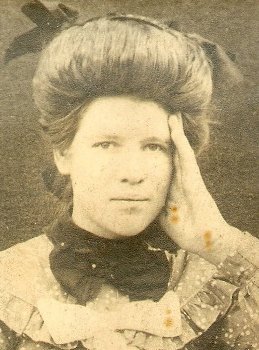
Grandmother Carie Gerthie Dell Pinegar Fulks:"You don't have to be so kind. I'm not sick." Comment made often to Aunt Avel, her daughter.
"Aw! Shaw! Avel. You know that's not right!"
"Herb, you can see that we have just a half-cord of wood for the fire. It's a nice day. You will need to get out and chop-up enough wood so we'll have a whole cord.
"Somebody over there at Golden Pond is blackgartening you and me, Avel."
Grandmother Carie Gertie Dell Pinegar Fulks was among the very finest of people. Born in 1889 and deceased in 1959, my grandmother was an old-fashioned lady who strictly adhered to the hair and dress styles of that previous century. She dawned a bonnet, a long dress and full underskirt. Reaching far below her knees when combed, separated and braided, it was wonder for all to watch Aunt Wilmus Avel Fulks braid Grandmother's long blondish- hair. Then securing the braids of hair to the top of Grandmother's head, it was tied and secured by rubber bands, metal combs, and different types of colored bobby pins. With this hairstyle, Grandmother Carie was not only beautiful, but her hair was not a hindrance to the work and play to be done by a Kentucky farm lady.
By her husband, Mattie Mandard Fulks, Grandmother conceived and nurtured four children- three boys and one girl. From eldest to youngest were: Seamer M, Rummage Ira, Herbert Buford, and Wilmus Avel Fulks. Rummage Ira Fulks was my father, and he deceased in 1990 at eighty-three years of age. My grandmother Carie's children were delivered at home by a mid-wife of Irish descent. ( Lennie O'Bryan) All of Carie's children were fullterm and healthy, and she did her best to keep them that way.
That all of Carie's children were literate was demonstrated by their abilities to do reading, writing, and arithmetic- the measure of educational achievement required for American citizens during those times. Their communicative and social skills were qualities that made them popular among others living along a winding,rocky, country road leading south toward Golden Pond and east to near the Cumberland River.
A close and congenial community, many social gatherings were organized through the church at Ferguson Springs. Most people residing in the area were extremely loyal to both church and country. If the truest concept of God is the presence of love, this attribute usually manifested itself throughout the Jennie Ridge and Golden Pond area. Gossip and smalltalk were identified among the local hillpeople
as "blackgarting."
Especially gifted in survival skills, Grandmother Carie was an expert at sewing and quilting, cooking and gardening,canning and curing of meat, and pickling. Among
her many admirable qualities were her amazing conversational abilities, more than a
speckling of wit; and a tendency toward superstition.
Accompanying those personal qualities were a strong belief in God and a hereafter. All the Pinegars I met possessed those traits.
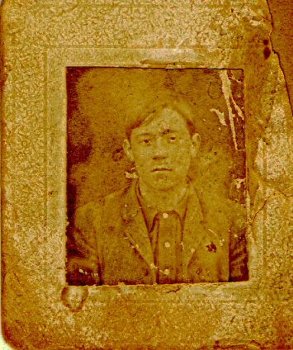
According to Grandmother Carie Gertie Dell Pinegar Fulks, her husband, Mattie Mandard Fulks, succumbed to complications resulting from snakebite in 1932. Walking from his father's house to the barn, he had gathered corn from a corncrib. Needing corn to shell for chickens and some ears for his horse, Trixie, my grandfather was bitten above his left eye. Work to enhance a tiny photo snapped with an early Kodac camera,
this computer image lends evidence to the snakebite report. Grandfather bares two definite fangmarks above an eye.
During the year 1932, Grandmother's husband, Mattie Mandard Fulks deceased. The premature death of Mattie Mandard Fulks left her with the responsibilities of managing a farm and providing for herself and two dependent children. Until her death in 1959, Grandmother survived courageously with simple hard work, a small pension, and her
share of a crop planted on her farm. Carl Fennel, a neighboring farmer, ran a mechanized operation.
Two of Grandmother Carie's sons, Rummage Ira and Seamer M. Fulks, assisted her by providing cash and farm-labor as long as the two
resided in Western Kentucky. When Rummage and Seamer visited, they'd do minor repairs and some skilled labor. For instance, Rummage Fulks, my dad, wired Grandmother Carie's home for electricity in 1951 during a visit. By 1955, she was using an electric stove, radio, refrigerator, and other electrical appliances. By the year 1956, she, Avel, and Herb were watching television.
John Fulks, father of Henry Andrew Jackson Fulks II, the second John. John's father was Henry Andrew Jackson Fulks(Voltz)I.
RARE PHOTO-IMAGE OF John Fulks of Lyon County, Kentucky/spotted on the net site of a Fulks descendant residing in California. Assumed is that those submitting this image are descendants of Jo Sier Fulks, one of John Fulks' sons. Thank you for this image.(Estimated date is 1857.)
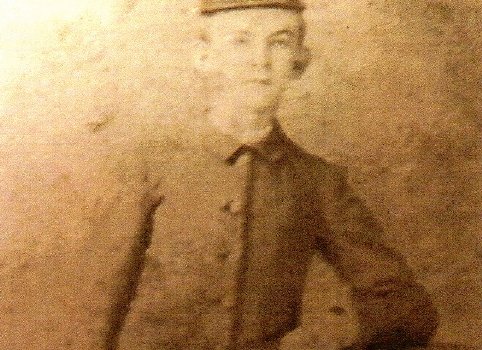
Prior to exiting Western Kentucky,Rummage Ira Fulks and his brother, Seamer, provided as much assistance for Grandmother as possible. Uncle Herbert B. Fulks and Aunt Wilmus Avel Fulks remained at home with her. Providing cash contributions for her welfare, transportation by automobile, and skilled labor when needed, Rum and Seamer were hardworkers as long as they
lived near their mother.
Uncle Herbert and Aunt Avel were considered dependents, but they did their share of work. Without their help, my grandmother would not have been able to keep the farm she had inherited from her husband, Mattie Mandard Fulks.
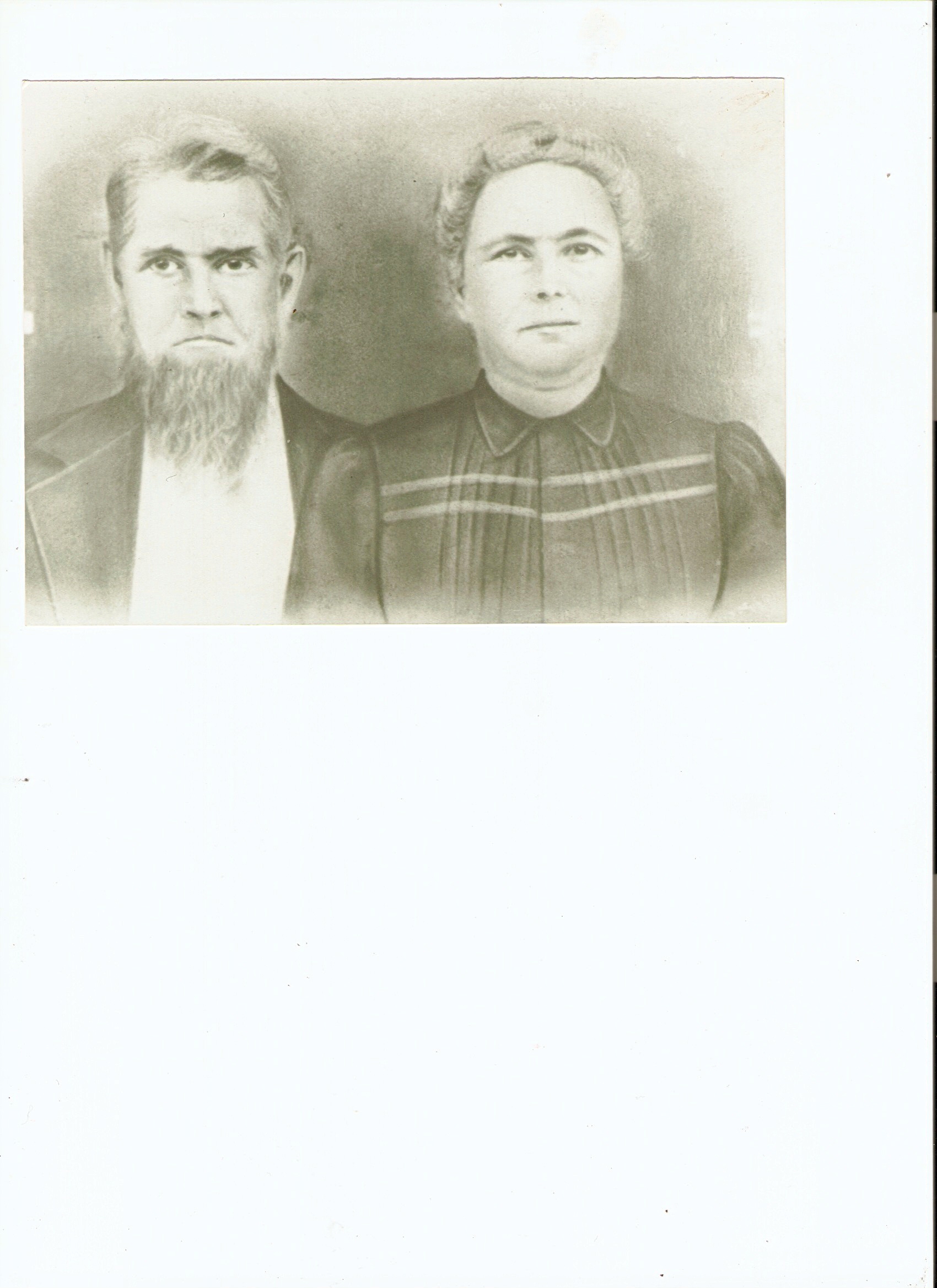
Pictured are Henry Andrew Jackson Fulks II and his wife Nancy Emeline Mitchell. Henry deceased in 1924; and Nancy in 1911. Nicknamed "Jack," Henry Andrew Jackson Fulks II was a son of John Fulks(the second one.)"Jack deceased in 1924; and his wife, Nancy Emeline Mitchell Fulks in 1911. To find their graves, visit the Fulks Family Cemetary East of underwater Birmingham, Kentucky. (Lyon County, Kentucky.)
Family Historical Fact: Buried in Newby Cemetary are Henry Fulks II's Mother and Father. There have no gravestones. Henry Fulks' Father was John Fulks.<10-2-1827: 8-28-1888 at age 61 years> The mother was Dochia Barnett Fulks. Shedeceased 5-22-1918 at age 79 years.The two were married November 24,1851.
Family Historical Fact: Buried in Newby Cemetary are the Father and Mother of John Fulks: Henry Andrew Jackson Fulks I and Pollyanna Newby Fulks. Information is
that there are no gravestones.
Prior to relocation at Route 2, Golden Pond, Mattie Mandard Fulks had inherited
a share of the proceeds from the sale of his grandfather Henry Jackson Fulks II's farm near the Tennessee River in Lyon County. The deceased Mandard Fulks is buried in the Fulks Family Cemetery at the same location as Henry Fulks II and wife Nancy Mitchell Fulks.
That cemetary near Duncan Creek and
Star Lime Works is presently maintained by our cousin Benjamin Pinegar, a resident of Swanee, Kentucky. His dedication at assisting us there during our absence is admirable. A small cemetary with less than a dozen graves, it remains important to our family for reason that all of the dead endured great hardships for the benefit of we who are their descendants.Cousin Benjamin Pinegar is a descendant of his
Greatgrandfather Benjamin J. Pinegar and Sara Elizabeth Depriest Pinegar.
Farming is hard work even with mechanization. Most of those around Golden Pond used primitive methods into the 1950's, but they were good farmers and managers. Carl Fennell, a close neighbor, was an exception. He made a good living by farming several tillable acres along Crooked
Creek.
Eggs, homemade butter and milk could be had with just one milkcow. There were jerky and hickory-smoked,sugar-cured hams. Both meat and garden vegetables could be canned and stored in food-safe places. Also available were plenty of poultry and pork, beef, fish and wildgame.
People could trade for some of the food and hardware items needed. Preparations for surviving into the next harvest would include the work of canning, pickling and curing of meats. Grandmother Carie and Avel
were experts at such work. And fortunately, they'd occasionally encounter
an opportunity to trade or gain some cash. A neighbor might need corn, a ham, or his
cow may have gone dry. There was always some kind of bartering going-on.
By the sharing of labor and trading for items needed through neighborhood and area co-operative groups, the residents along that twisting, gravel road were able to survive virtuely free of outside influences for many years, but healthcare was poor. Cash shortages, taxes, and occasional dental procedures were problems with which to deal. Of special effect were that little or no treatment was available for blood pressure, skin cancer, and diabetes; among many other ailments. Depending upon aspirin, home remedies, and patent medicine, people became accustomed to enduring pain and suffering.
They often prayed for deliverance from those afflictions.
An excellent retreat for humans during sultry Kentucky summers, the creek was a natural air-conditioner. There one could fish, catch crawfish, and find odd rocks and fossils. As a child, I loved to play in and near Crooked Creek.
Struck by a passing car on the gravel road in 1957, Jack, the shetlie I befriended and loved, is buried under the shade of a cedar tree on a hillside near the site on which stood my grandmother's house. Both Jack and I shared the same birthdate.(June 3, 1940.) Such coincidence is somewhat strange. My grandmother Carie would stress that fact to me when we visited. That made me feel important for reason that I adored Jack, the shetlie. It is evident to me
that no human has ever been so dependable and trustworty as was that dog. More than fifty
years have past since Jack's death, but I still remember him fondly.
Deceased prior to my birth, Grandfather Mattie Mandard Fulks had been the owner and only mount for Trixie, the appaloosa horse. Hanging in a stall of Grandmother's barn was the saddle Mandard had used while riding Trixie.
A small white horse with spots of black, I am certain that Trixie and Grandfather Mattie Mandard, its owner, were dedicated to each other. After Grandfather's death, Trixie would stand lonely and depressed behind the stockfence adjacent to Grandmother's farmhouse.
A recurring childhood dream was to saddle-up Trixie and ride him into the forests and around Grandmother's farm. Following Mandard,s death, that horse was not used. It was somewhat of a keepsake. Turned into a barnlot at dusk for its protection and special feeding, Trixie's saddle hanged from a hook within a stall and became dusty.At auction to settle estate,
that saddle brought $125. Free to graze at pasture with cattle, Grandfather Mandard Fulks' horse died from
aging in 1956. Reminising those times during the 1950's, I was saddened to visit Grandmother's farm and discover that both Jack and Trixie were dead. It would not to be long before
Carie Fulks would also be deceased.1959
Moving with his family from Kentucky to Georgia in February 1945, my dad was an ambitious man who felt that he would find a more secure future by seizing upon an opportunity to enter into the Civil Service. Dad had worn-out in his dealings with a political patronage system that assured employment only for the duration of a Kentucky gpvernor's term of office. That was employment controlled by whether a Democrat or Republican was in the governor's office.
Come had the harsh winter of 1944, and its cruelty had grasped January and February of '45- Earth's next year.
Victory had not been assured, but history now records that WWII had neared its climax. In a greater sense England and its allies had been victorious. Also near its climax was the Rummage Ira and Ella Belle Fulks residence in the state
of Kentucky. Employed by The U.S. Fish and Wildlife Service-Department of the Interior, my dad was transferred to "Piedmont National Wildlife Refuge" near Gray,Georgia. From that migration until Grandmother's death in 1959, our visits to Kentucky were once annually. Fringe benefit of Rummage Fulks' employment allowed thirty vacation days and ten days sick leave to accumulate. Those days were paid. The Fulks family entered into an age of family re-unions. Such joyful reunions were those visits with relatives in Kentucky. From those cedar and hardwood forests emerged the freshest of air. There existed a feeling of love to be near again to those who had shared with me my first four years. There lay promise in their manner. Optimism ruled as a crutch leading to mental stability. Life will become less difficult. We will become prosperous. But despite those promises, it was so wonderful to see my human and animal friends again
there in Western Kentucky.
All are brothers and sisters. All share having the same needs, dreams, and aspirations. We need food, clothing, shelter, clean water, clean air, educational opportunity, medical cure and prevention.
While prosperity itself may be defined differently, it most surely commences with those and other basic needs. A man in possession of those items is indeed wealthy.
Reference Point: Account of Rummage Ira and Ella Belle Abbott Fulks movement from
Western Kentucky to "Piedmont National Wildlife Refuge" near Round Oak, Georgia is detailed within Old Route 41-A & The People and Coincidence Recalled(Stories intended for for viewing and use of future family historians.)
It is assumed at this point in my research into the Fulks family history that following the death of Henry Jackson Fulks II in 1924 that the farm he had inherited from his father ,John Fulks, was sold at auction to settle estate. The proceeds of that sale were divided equally among his heirs which included at least nine children. Mattie Mandard's Fulks' share was sufficient that he
purchased for Grandmother, himself, and his dependent children, Herbert Buford Fulks
and Wilmus Avel Fulks the farm near Jennie Ridge and Crooked Creek located five miles Northeast of Golden Pond,Kentucky in the county of Trigg. The county seat there was Cadiz.
Deciding to move from the Star Lime Works area near Birmingham, Kentucky; where the Henry Jackson Fulks farm had been, Mandard and Carie Fulks had purchased about 180 acres; a farm on that was fed in part by backwater from the Cumberland River. Situated five miles Northeast of Golden Pond, Kentucky in the shadows of Jennie Ridge, a significant portion of land was fertile and productive.
By relocation, Grandmother
had moved from Lyon to Trigg County; only eleven miles in distance from her former farm near Star Lime Works and Birmingham, Kentucky. Rummage and Seamer, two of her sons, constructed a twenty-feet-deep cistern. It was hand-dug and tightly enclosed in cement. Never known to have gone dry, the cistern made it possible for Grandmother to draw water by bucket instead of walking three-
hundred yards to Crooked Creek for water. The water supply
for livestock was all along five miles of that creek ; its mouth near the Cumberland River and draining into Kentucky Lake.(once the Tennessee River until 1941) Crooked Creek, although a running stream, might have been contaminated and
unsafe for use by humans. Both hogs and cattle waded and drank from that stream. With a cistern, Grandmother Carie and family had
a more safe water supply. Rainfall was stored from water catch from a tinroofed house by way of gutters leading to the cistern.
Visiting Grandmother in Kentucky during winter while my dad worked in the state of Georgia occurred on at least two occasions. As a child I was entertained by numerous ghost tales and weird events that Aunt Avel and my grandmother shared. Seated around the fireplace, there was magic in their voices. They could tell a spooky story with the same effect as "The Monkey's Paw" of Edgar Allen Poe. Many
years were required before I overcame my childhood fears of darkness. Those scary stories that I heard are part of the reason.Now convinced from personal experiences
that such a thing as ghosts do indeed exist; one of my true stories is related in The
Craven's Bay Ghost.
Beyond the semi-secure walls of homes in rural America are the familiar sounds of
the creatures that share with humans the Earth. It was especially true in Georgia
and Western Kentucky. There are the distant and near "yap-yapping" of the red and gray foxes, the shining eyes of the raccoon. Entertaining me as a child, into my
adulthood until the hour of my own death are the sounds of frogs ,toads, crickets,
katydids, and owls.
During my father's annual leave and our visits with Carie, Herbert and Avel, my reunions with Jack and Trixie were joyous occasions for me.
"Trixie thinks that you are Mandard," Grandmother would say. ( Mattie Mandard Fulks had deceased in 1932- eight years prior to my birth.) Grandfather did not own
and couldn't operate a motorized truck or car. He depended upon his horse for all transportation.
On the subject of Jack- the shetlie, she would comment: "Jack has the same birthday as you, George. He always remembers you from your last visit." By Jack's enthusiasm, affection, and excitement, I could tell that Grandmother was correct.
Carie Atlantic Gerthie Dell Pinegar Fulks:"You don't have to be so kind. I'm not sick.
Dates for photos posted are approximate:(1)Carie and Mandard Fulks>1906;
(2)Calendar photo of Antebellum home>1950's; (3)George Harold Fulks>1951
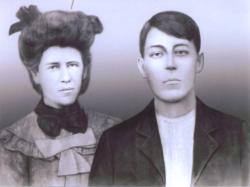 |
 |
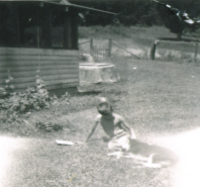 |
| Carie and Mandard Fulks |
|
George Fulks..age 10 |
(Located in Thomasville, Georgia, the Antebellum home picture was the house my
grandmother dreamed of owning. Grandmother kept this picture from a calendar in a special place and talked of it every day. She wanted a home of that quality constructed on the hillside facing her older, farm home.)
One of the most inspiring of Carie Fulks' children was her youngest son, Herbert Buford Fulks.Attached to an old U.S. Naval vessel of WWI vintage, members of Uncle Herbert's artillery unit served their country as gunners on that old ship. Time threshold was 1941-42, and the war with Japan was in its early stages. Sharing with me that he had been placed on such a ship was entertaining to me as a child and into my teens. What he shared with me was stated clearly and completely. As a good listener, I was truly impressed. Uncle Herbert reported that much of the time spent aboard ship was in very rough waters off the west coast of America. Patroling between Seattle, Washington, along the coast of Alaska, and cruising in the vicinity of a Japanese held island(Adac) that must have been a harrowing experience for my uncle and others serving their country in that duty. (Somewhere in the Fulks Family
albums is a photo of Uncle Herbert as he worked with his unit. He's washing uniforms and hanging them on clothesline.)
Returning home to his mother in Kentucky following a year in service, Uncle Herbert reported that his unit had experienced one-hundred feet waves that nearly wrecked the ship. "It would turn completely upside down," Herb said. "Then it would come back upright. It would be that way for hours at a time." Reports were that seasickness made it difficult for the crew to keep food in their stomachs. Both army and naval personnel suffered extreme cold and were unable to sleep or stay in their sacks for reason of rough seas. "The
wind would blow so hard," reported Uncle Herb, "a couple men were blown off deck. They were rescued. During times, waves were so high and strong that it was dangerous to get on the ship's deck."
Dismissed from military service after one year, the Army claimed that Uncle Herb was disabled and maladjusted to the military. His family knew that a large part of Herbert Fulks' disability pre-existed. It was a subject of quiet conversation. "The Army doctor contacted me once," Grandmother was heard to say. "He offered to do surgery to release pressure on Herb's brain, but the doctor said that Herb would have just a fifty-fifty chance of surviving the operation. I decided not to let them operate on him. Herb won't be right, but his my son. He'll be alive, and I'll try and help him to get along."Years 1941-42 were prior to discovery and use of miracle drugs such as penicillin.
As a three-year-old at his grandfather Henry Jackson Fulks' farm, my uncle had come near a mule that was the farm work animal.He had approached the animal from its rear, grasped its long tail; and was kicked through a barn wall. Remaining in a coma for three days, my uncle had not been expected to survive.
My uncle did regain consciousness. Consequences of that accident were that his nose had been broken and never set to heal properly. Herb's forehead had remained indented to an extent that caused pressure on his brain. Affecting his emotional stability for the remainder of his life, Herb spent a significant portion of his life in veteran's hospitals. Succumbing to liver disease, he deceased in 1969 at the U.S. Army Veteran's Hospital, Murphysville, Tennessee.
As for my personal relations with Uncle Herbert, he and I remained the best of friends. When Uncle Herb and I shared time, he displayed his gentle side. Carving toys for me with his pocketknife and doing other favors for me, I was never to encounter another relative of whom I was more fond.
continue to edit here>/p>
Able to maintain his broad-ax as sharp as a razor was an aid for Herb to produce railroad crossties by hand and the cutting and gathering of firewood. Around the farm, he helped in the feeding, watering and caring for Grandmother's farm animals. Trimming and yard work and the protection he provided for grandmother Carie and Aunt Avel were some of the help Uncle Herbert provide on the farm. (Described as a good worker, he was also able to earn cash by assisting neighboring farmers with their animals and crops.)
My uncle Herbert paid a couple of visits with his Uncle Hardie Fulks. Residing in
New Mexico, working in a silver mine, and being married to a native American were
events distingusihing Uncle Hardy from other children of Henry Andrew Jackson Fulks II and Nancy Emeline Mitchell Fulks.
Uncle Hardy had formerly resided in Oklahoma; having runaway from Western Kentucky around the year 1925.
In my possession is a pedestal table produced by Uncle Herbert while he was a patient in a veteran's hospital. The author would like to preserve the table as a family keepsake.
After I decease, I offer this item to my neice, Wanda Faith Hallman who resides inear Macon, Georgia. (Uncle Herbert demonstrated his "knack" for craftsmanship in this particular piece of woodwork. My uncle was also expert at restoring the hickory-bark seats on the chairs of his time. According to Uncle Herbert, he learned this skill from his Grandfather, Henry Jackson Fulks II.
Said Uncle Herbert B. Fulks, "We never saw the Japanese but once when I served on the gunboat. A small, reconnaissance plane flew high over us. The gun crew fired several shots at the plane but did not shoot it down." (deceased 1967..Tennessee veterans' hospital)
Deceased during the late 1980's, my aunt Wilmus Avel Fulks was the youngest of my grandmother's children. Remaining with her mother following the death of her father, Mandard, Avel assisted with all the chores required about the house and farm. My grandmother would have experienced great difficulty surviving independently as a widow if Aunt Avel had not remained at home with her mother. Moving to Georgia might not have been possible for Rummage Ira Fulks; had Avel abandoned the house. "My mama is not able to handle all the work that needs to be done here," Aunt Avel said.
I observed my Aunt Avel working hard to keep things going after Grandmother Carie's health began to decline. Among the chores Avel performed were canning, housekeeping, the hand-churning of sour milk for producing butter, the planting and harvesting of a garden and its care; and even pickling cucumbers, pigfeet, and making jams and jellies. Grandmother and Avel worked well together as a team. "Few hands make for heavy work."
Aunt Avel Fulks was an aid in the
control and supervision of Uncle Herbert. He would become abusive and sometimes violent as a result of his childhood brain damage. That was one reason Aunt Avel was needed at home. Although she could not lift heavy weight, she was competent in assisting with work, management, and ownership of the farm.
Suffering from a diabetic condition that could be controlled by dieting, Avel did not use any special medication; such as insulin. She would injest a swallow of ginseng and vinegar each day. She felt that this concoction helped her.(Those roots in that goldfish bowl resembled tiny, creature that had clustered together into a kind of "magic union." As a child, I was certainly impressed by her enthusiasm, the
appearance of that medicine, and her confidence in partaking of it.
A bright and sensitive woman, she occasionally suffered from emotional and nervous stress. Among other causes, a portion of her anxiety might have been related to the premature death of her father, Mattie Mandard Fulks.(1888-1932) Encountering many cases of those without a father or mother, it seems to add to the normal stresses of life.(When the "hunter" has died.)
Dedicating most of her life to her mother, Aunt Avel was probably the most intelligent and best-educated of Grandmother Carie's four children. Following the death of Carie Dell Pinegar Fulks in 1959 and auction to settle estate, Aunt Avel took with her a few personal belongings to Alton, Illinois. Marrying Woodrow Bannister, a lifelong friend who resided in that city, she was actually honoring a promise she had made several years earlier. "I'll marry you when my mama is gone, Woodrow. If I should die before she does, we'll meet in heaven."
Buried in an Alton, Illinois cemetery are both my aunt Avel and her second husband, Woodrow Bannister.
Aunt Avel's first husband was an native American whom she met whom she met during a visit with her Uncle Hardy Fulks; brother of Mattie Mandard Fulks, Avel's father. Taking up residence in the state of Oklahoma, for many years, no-one knew of Uncle Hardy's whereabouts.
Divorced during the late 1930's or 40's from a native American in the state of Oklahoma, Aunt Avel lived for a time with John Lane and native Americans. Returning to her mother, Carie Fulks, on the near Jennie Ridge and Golden Pond, my aunt abandoned that husband for unknown reasons. Husband, John Lane, was gtanted a divorce on grounds of abandonment.
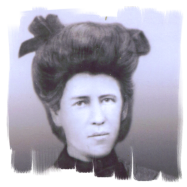 |
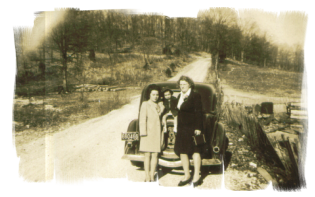 |
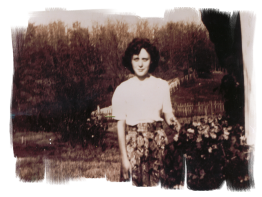 |
Grandmother Carie |
Aunt Avel |
Sister Euphama Jackson |
Assuming a portion of responsibility for my grandmother's welfare following the death of her husband were her two eldest boys, Rummage Ira and Seamer M. Fulks. Grandfather Mattie Mandard Fulks and his sons, Rummage Ira and Seamer had been trained and reared for farmlabor. That kind of work was difficult to the extent that both of his boys became discouraged with farm labor and the ancient methods necessary during those times. There were horses or mules used for plowing in the extreme humidity of Kentucky planting and harvesting seasons. Everything was done on the farm with the crude tools of the eighteenth century. Many were determined to
make their livelihood in some other way. That was the choice of Rummage Ira and his older brother, Seamer. Pursuing their education until fifth grade at Hubbard School in Lyon County, it is suspected that their attendance may have been irregular. Within a copy of a photo of the 1913 class of Hubbard School, I am not able to identify my father, Rummage Ira Fulks, but he was present the day that photo was snapped.
Raising livestock, poultry, corn and other crops; and utilizing hardwood and cedar timber, Western Kentucky was, in a sense, a bountiful land. Abundant game and fish provided a happy hunting ground. But those young boys had bcome aware of some of the luxuries enjoyed by wealthy people- "what money could buy."
At sometime during the 1920's, Rummage, Seamer, and several others became involved in the production and distribution of "moonshine whiskey." This type of industry paid well on cash. The two young men continued to produce whiskey prior to and during the Great American Depression.
As the author of this section of the "Fulks Family
History",
discussion of that part of their lives "between the rivers" is difficult. Most of this kind of industry occurred during the years 1929-1941. Prohibition was repealed in 1933, but many Americans continued to produce "moonshine." Recalling Grandmother and her families' whispers of "revenuers" and "government men", fear emerged within my childish mind. Unable to comprehend exactly what was occurring, I observed that Dad always had cash and an automobile. (So did his acquaintenances.) Having no need or use for whiskey, I observed that it had a distinctive odor and would take ones breath away by its odor. Being of absolutely no use to me, I learned that Uncle Herbert loved it. When the men were producing it, I could smell it cooking and souring from miles away. Those were not my dad's stills but other producers in the counties of Lyon and Trigg.(By 1941 Rummage and Seamer had stopped making whiskey.) Smelling also were internal revenue men. They needed no dogs or airplanes to find the stills. Nevertheless, rumor of spies were circulated among those hillpeople. One hundred dollars was the bounty for reporting the location of a whiskey still and the people producing.
Hundred pound bags of sugar in a grocery store as compared to the usual five-pounds in kitchen cabinets and tin cannisters drew questions from me. That was a sight to behold. A one-
hundred pound bag of sugar is something impressive to a child.
Some might choose to omitt such a chapter in our family history, but it is included in order to stress the concept that may advise that humans and their animal possess an instinct to do whatever is needed to survive.
Very little information on their distillery was discussed in my presence. I was able to gather that their enterprise was profitable and that the two brothers were never apprehended or prosecuted as a result of producing and distributing "moonshine whiskey." A cousin apprenhended by feds refused to identify owners of that distillery. Consequently, that cousin served one year in a federal pen.
A few "tid-bits" to convey are that my dad's nephew was delivering a load to a large mid-western city. It's the home of a very famous baseball club. A very colorful bird adorns their baseball caps. Chicago folks don't discuss it. The whiskey needed for a party a group had planned. Rumor was that Internal Revenue agents seized cash and a load of moonshine from Uncle Palmer Pinegar, the only son of Josie Pinegar who resided in that town. It is likely that he was granted immunity from prosecution and released on his testimony as to who were the buyers. Uncle Palmer was later murdered in the large city where he and his mother resided.
Returning to Kentucky in 1949, my aunt Josie Pinegar bought property in Grand Rivers and operated a restaurant and motel. Deceased on October 8, 1950, I met her
once in my life.
Laws of those times stipulated that: "PRODUCTION AND/OR DELIVERY OF INTOXICATING BEVERAGES IS A FEDERAL OFFENSE PUNISHABLE BY FINE AND/OR IMPRISONMENT." So many Americans produced whiskey that the feds were unable to keepup with their workload. It was during prohibition days, but there was plenty of whiskey available. Just a small portion of the total was produced in and around Golden Pond, Kentucky. Golden Pond had the reputation as producing some of the best.
PART II, RUM AND SEAMER IN DETROIT AND STORIES TO SHARE
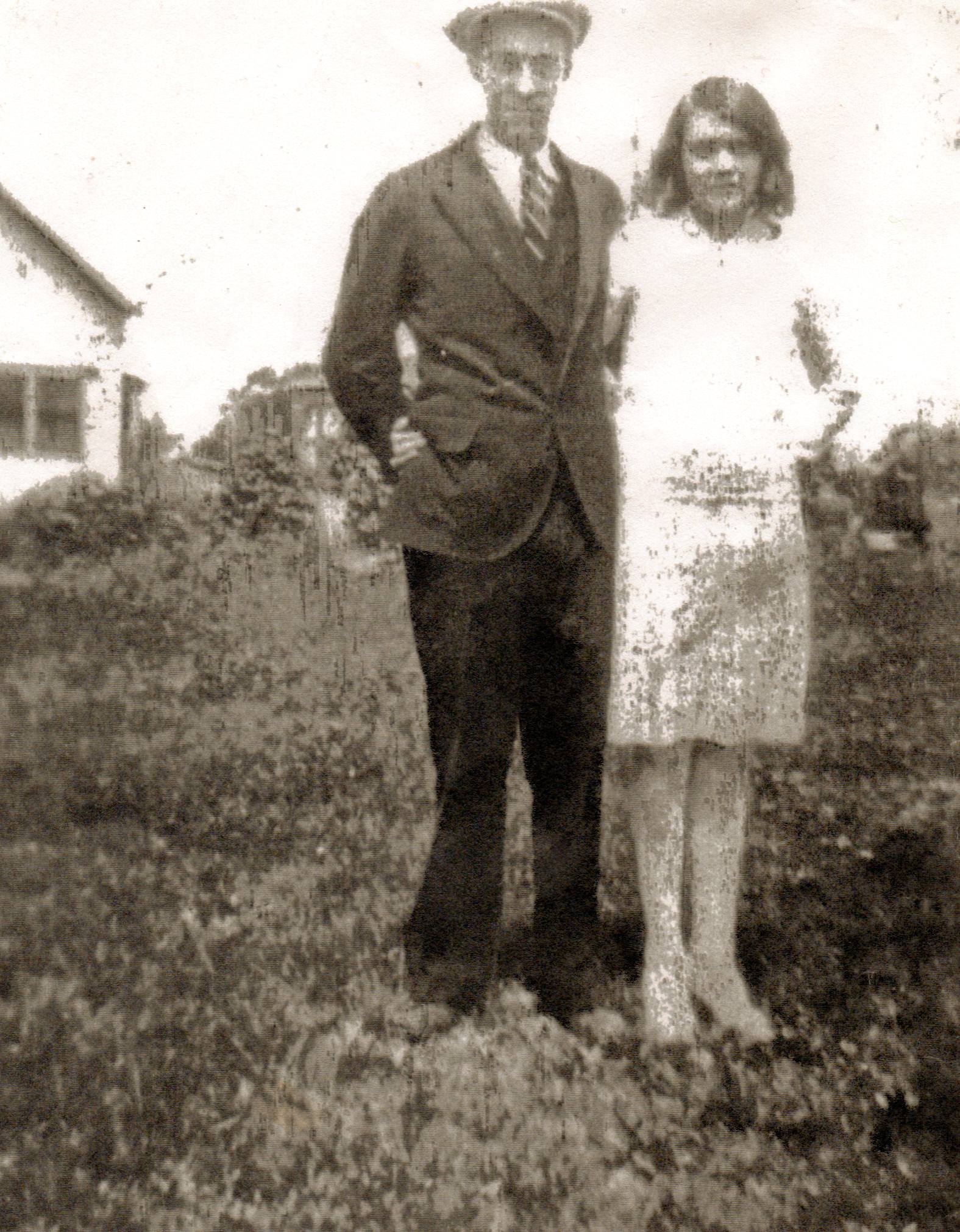
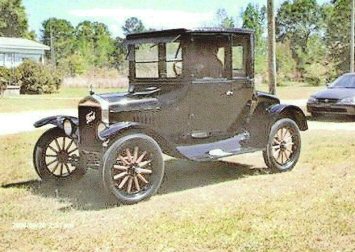
Exiting western Kentucky during what may have been 1926, Carie Pinegar
Fulks' two oldest sons, Rummage Ira and Seamer M, traveled to Detroit, Michigan by
railroad passenger service.There they found employment with The Ford Motor Company- manufacturers of
automobiles and trucks. Working on the assembly line and earning $5 for each eight hour shift, the two young men were happy to be earning legal cash. It is my understanding that during a part of their residence in Detroit, they were able to earn overtime.
"That was good pay during those days," Dad said.
Meeting his future wife while working in Michigan, my father was later married to Ella Belle Abbott. My mother worked as a waitress in a restaurant near the Ford Motor Plant. A native of Soldier, Kentucky, Ella's entire family had accompanied her in order to find employment in Detroit. A daughter of Bruce and May Shay Abbott, my mother's brothers and sisters were Eva, Ottie, Elbert, Kenneth, and Hilma.
(According to my father, his affair with mother was "love at first sight.")
By 1929, the nation relapsed into what has been called "The Great American Depression." Many employees of The Ford Motor Company were handed their last pay and fired. Included on
the layoff list were Rummage Ira Fulks and his brother- Seamer. Being "laid-off," my father departed Detroit and returned to his mother's farm in Kentucky. Boarding a railroad freightcar and headed in the general direction of Paducah, he arrived at Star Lime Works three days later exhausted and penniless.
Rummage Ira Fulks had given his future wife his final pay from Ford Motor Company
to make it possible for Ella Belle Abbott to travel to Kentucky. To his mother he said,"I've met the girl I'm going to marry. She'll be here soon, Mama. I gave her every penny I had. I jumped off a railroad car at Paducah and had not a thing to eat
for three days. I stopped at the Barnetts there in Paducah. Darci fixed breakfast for me. I slept the whole day there and got a ride to Birmingham with the
grocery store delivery truck."
"I'm happy for you, Rum. We'll manage someway,"said Carie Dell Pinegar Fulks.
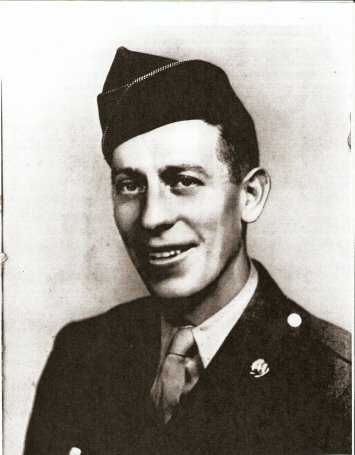
A trained welder, my dad's brother, Seamer remained in Detroit for a time. Finding
employment with another manufacturer, Uncle Seamer may have returned to Kentucky during the
year 1932. Blond haired and blue-eyed, Seamer was personality gifted and popular with most people he encountered. His adjustment to working outside Kentucky
was completed following his enlistment in the United States Army and participation in World War II.
My uncle developed a preference for the area near Detroit and Highland Park.Married to Lois Harrison, a native of Bartho, Kentucky; they produced no offspring. Uncle Seamer was able to provide a larger share of financial aid to Carie Fulks than his brother Rummage Ira. My dad and Ella Belle produced five children. I'm one of them.
Married during what I believe to have been 1929, my father and mother conceived their first child the following year. My eldest sister, Euphama ( as of January 2008) is still living. Married to Bernard L. Jackson during 1948, she conceived several boys and girls. All of her boys are Fulks descendants and reside in the Round Oak, Georgia vicinity. Euphama's boys have the surname Jackson. Two of her girls with whom I am acquainted are Cheryl and Lana.(Euphama's husband Bernard L. deceased in 2004. Related to Confederate General Stonewall Jackson, he
was an avid hunter, fisherman, and outdoorsman. Employed for many years at Robins Airforce Base, Warner Robins, Georgia, he was extremely fit for survival.
From the year 1940 through his death during the 1980's, I recall meeting my
uncle Seamer Fulks on three occasions. It might be truthfully stated that I did not become acquainted with Seamer. Enlisting in the U.S. Army during WWII, it is known that he participated in the D-Day Invasion and other important campaigns in Europe.
A private and combat infantryman during the war, it is known that his name is recorded in "The National Archives." Residing near Detroit during most of his life, he
was able to earn a comfortable living and retirement despite a grammar school education. Seamer would not talk of his war experiences but I strongly suspect that he and his comrads came upon one of the concentration camps. Offered a battlefield
commission as a second lieutenant, he shared with methat he had refused the offer.
My uncle Seamer M. Fulks was sterile as a result of suffering meningitis as a
young man. Buried in a cemetary in or near Highland Park, Michigan are both my uncle
and his wife, Lois Harrison Fulks. Those two were seldom seen in Kentucky after 1945. Overcoming poverty by moving from an area where the economy was based on farming and farm labor into an industrialized area resulted in senior security for
them.
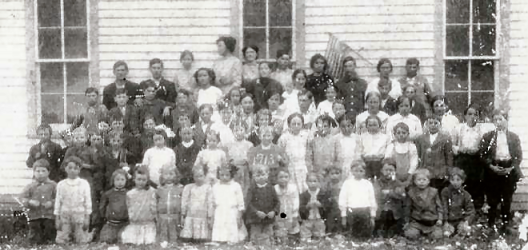 |
| OLD HUBBARD SCHOOL 1913..(front row/last three children of right are Rummage Ira,Seamer M., and Herbert B. Fulks |
Listening to my dad, Rummage Ira Fulks, repeat to me this story several times, I would like to share it with readers.
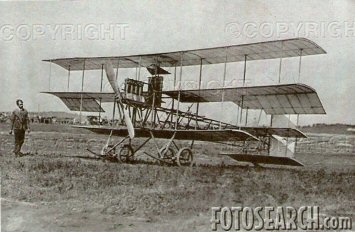
"While attending the Old Hubbard School during 1913,
we all heard a very loud noise while we were in class. Directing the entire class outside, my teacher and all of her students exited the building very quickly to determine the source of the noise. Pointing toward the sky, the teacher brought our attention to an airship; the first by-plane any of us had ever seen. Called an airship during those times, it was a truly exciting event for all of us. Flying at high altitude for
1913, we could just barely see the man sitting in the seat of that airship. The motor
of the airship sounded very much as a two-cycle lawn implement of today.
Someone later relayed to us that the bi-plane had taken-off from Murray, Kentucky." It had been only
six years earlier that the Wright Brothers had made their first successful flight at Kitty Hawk, North Carolina. First sharing this story to me in 1945, my father made a forever impression by his account of witnessing that early flight of an airship. How marvelous an experience it must have been for the children of that time!
"A long line had gathered near the Ford Motor Company employment office in 1926. Several had been waiting all night to keep their place in line. Needing only a certain number of hires, I remember that I was about eighth in line. Walking slowly along that long line of prospective employees, he looked each job-seeker in their eyes; examining them closely. When the foreman saw me, he grasped my right arm and growled a very enthusiastic- "you!!" Directing me to a doorway that led to a nearby office, I signed the necessary papers and was placed on the assembly line immediately.
In otherwise excellent physical condition, my father, Rummage Ira Fulks was
examined for induction into military service at some time between the years 1941-45. Failing
the physical examination, it is estimated that Dad was about 28 years old., he must have been approximately
28 years of age. The examiner determined that my father was afflicted with a peptic ulcer. Failing the exam for that reason, there were other exemptions. The year 1941, and Father and Mother had five
children which were other exemptions and considerations. Apologetic during visits from Cousins Virgil "Coonie" Mitchuson and Harvey Hubbard who were U.S. Army soldiers, Rum said, "I wish I could go over there and help you win the war. Those two would say to Dad, "That's alright, Rum. You need to stay home and take care of your children. We'll do this for you and them." apologized to his cousins Coonie Mitchuson and Harvey Hubbard.
Cousin Coonie distinguished himself in combat. This author has read a citation issued to Virgil Mitchuson for valor in battle. Cousin Harvey related to us that most of the soldiers in his unit were killed during the Battle of the Bulge. All their friends were proud of Harvey and Coonie. They looked so good in their uniforms, and they stood as examples of our strongest and bravest me. Men such as those could indeed win. With the help of their allies, they were victorious.
My great-grandfather, Henry Jackson Fulks II married Nancy Mitchell during the latter years of the 1850's. One of Henry II's ancestors had been awarded a land grant on the Tennessee River in what was then named Caldwell County. Their property was either granted for service in war or by lottery, and it was passed on to different heirs. Henry Fulks I, his son John, and other Fulks ancestors continued to increase their landholdings. Some became sufficiently wealthy to buy more land The family became prosperous under standards and conditions of the 18th century; if not by money, by the earth they owned and worked. Two hundred dollar in cash had the purchasing power of one-hundred-thousand during modern times.Research into past family history reveals tha Henry Jackson Fulks I took a wife named Polly Newby. Henry Andrew Jackson Fulks II inherited that land
from his father, John Fulks, Jr. Those lands did not amount to dynasties. Those farmers just worked hard, produced children; as many as they could. Cash was not that important.
For instance, Henry Andrew Jackson Fulks II and wife, Nancy Emiline Mitchell produced at least nine sons and one daughter. Of course, some of those sons either lacked or lost interest in farming. It was really hard work which resulted in the scattering of different family members in various directions. Some would sell their shares; taking-off with perhaps one-hundred dollars. That was a lot of money in the 1920's. Known is that Henry Fulks II's son Hardie ran away to Oklahoma and New Mexico; marrying two different native American women, having children with both women, and working in a New Mexican silver mine. Exiting Kentucky in 1925 was not seen again until 1951. Hardie returned to his home state then in order to obtain his birth record for social security purposes.
Somewhere in the states of Oklahoma, New Mexico, or scattered among the North American Continent, there may be descendants of Hardie Fulks who use his surname. Some are girls who married. Those would be difficult to locate.
Known is that Willie(William) went into farming near Lincoln, Illinois.(Whatever happened to Henry II's other boys and girls will need further research; "looking for a needle in a haystack"-so to speak.)
While visiting my family and me at Harvel, Illinois during the 1980's, my father
Rummage Fulks and I decided to pay a surprise visit at my great-uncle Willie Fulks' residence in Lincoln, Illinois. William Fulks was then retired from farming; and into his early 80's. That son of Henry Fulks II's, my great-uncle, was living in a compact government apartment within that city. Sharing with us his story of living in a mobile home and surviving an encounter with a tornado which had caused him serious
injury, Uncle Willie was drawing social security and afflicted with numerous cataracts. Less than two
years later, we learned that he had deceased. It was a pleasure to have met Uncle
Willie once. A brother of Grandfather Mandard Fulks and son of Henry Jackson Fulks II, the lack of educational opportunties is felt responsible for Uncle Willie's poverty during his latter years.As a Greatgrandson of Henry Andrew Jackson Fulks II, this researcher cannot claim to be either secure financially or wealthy. Undertaking this research project is personally justified for reason that those ancestors helped to assure survival of this present generation; and made great sacrifices to assure our survival into the year 2009. I appreciate them. Extending to them my full support, I have personal knowledge of their dedication and hard work.
Mattie Mandard Fulks was one of Henry Andrew Jackson Fulks' boys and my Grandfather. He remained in the area near the old landgrant where he met his wife,
Carie Atlantic Gertie Dell Pinegar. Unknown is the exact date or year of the marriage of Mattie Mandard Fulks and Carie Dell Pinegar, but 1906 would be a close calculation considering the fact that my father, Rummage Ira Fulks is included in a photograph of students in first grade at Old Hubbard School.about 1913 My grandmother and her
family had moved to the area near Ironton and Star Lime Works from Tennessee.
Suspected is that her group of Pinegar's had been associated with Mormons. That possibility is based on the name "Pinegar" occurring in association with those people listed on netsites based in that state.
Of special interest to this writer are some of my readings on the subject of the Mormons in Utah. It is felt worthy of noting and arouses my personal interests. According to what I have read, they received help from beaver in their building of a reservoir to provide irrigation for very dry; but soil sufficiently rich in nutrients for the growth of potatoes. When the beaver of the area learned of efforts of the early Mormons in building of a dam for storing water in large quantities, the beaver almost immediately commenced to assist
them. An irrigation dam was completed very rapidly with the assistance of those animals. Water from a mountain was caught and stored. Consequentl, the dry land became productive.
During earlier readings on "Pinegar" as a surname, this writer learned that in old world records the surname "Banninger" was used instead of "Pinegar." Pinegars, according to Grandmother Carie and the net render support to evidence that those people imigrated to America from Sweden. A large group of Banningers(Pinegars)
are listed on the log of a steamship that traveled from Wales during the mid-1800's. In some manner, their place in Old World History is associated with that famous character- Joan of Arc.
Time threshold-1906
Grandmother Carie Pinegar married Mattie Mandard Fulks, son of Henry Andrew Jackson Fulks II.deceased 1924
Producing four children, my grandmother Carie and Mandard Fulks were the parents of my father- Rummage Ira Fulks and Seamer, Herbert Buford Fulks, and Wilmus Avel Fulks.our father,uncles, and aunts Rummage Ira Fulks and Ella Belle Abbott Fulks were the only descendants of Carie and Mandard having children and grandchildren. Herbert Buford Fulks was never married. Uncle Seamer had an adopted child- a boy. Aunt Avel was unable to
conceive.
Both Uncle Seamer M. Fulks and Aunt Avel Fulks were both sterile; the former as a result of suffering meningitis as a young man; and the latter an effect of diabetes. That instance of diabetes is estimated as a one-in-six occurrence. There are some
family tendencies toward skin and pancreatic cancer. Those are the greatest risks for males born; females are nil. One case of asthma has occurred, but it was inherited from the non-Fulks side.
Uncle Herbert's brain trama resulting from being kicked by a farmwork animal manifested itself by his difficulties in remaining emotionally stable and inability to develop and maintain social relationships. If heredity played any part in that malady, it cannot be determined. The author has some of those tendencies.
This family researcher is the only son of Rummage Ira and Ella Belle Fulks. I am George Harold Fulks June 3, 1940 As of March 11, 2009, three sisters are living. Those surviving are from eldest to youngest: Euphama Fulks Jackson (b 1930); Mattie Dorcas Fulks Hallman (b 1933);Betty
Jean Fulks Garvin; (b1936) Another sister, Alice Faye Fulks, deceased in 1946 shortly after our movement from Western Kentucky to Piedmont National Wildlife Refuge near Round Oak, Georgia. Alice Faye Fulks was born in 1938 and deceased in November 1946.
Some question remains as to
"cause of death." Diptheria was the doctor's diagnosis. In any case, a likely cause and origin was the water supply at Five Points, Jones County, Georgia. Most water supplies need to be filtered and treated prior to use for human consumption.
Not intending to imply that my ancestors were at all times sickly, it is more true that they and their neighbors were robust; many having survived some of the illnesses untreatable other than the bodies' natural system. Of course, threating humans during those times were ilnesses such as cholera, whooping cough, diptheria, typhoid, and smallpox among several others. This writer himself survived whooping
cough as a two-year-old.
Alice Faye Fulks, a nine year old third grade student attending Gray Elementary School in Gray, Georgia deceased in November, 1946 at Macon Hospital where she was "quaranteened." Funeral services were held at Ferguson Springs Baptist Church- just a few miles from my grandmother Carie Fulks' farm near Golden Pond, Kentucky. Buried at East End Cemetery, Cadiz, Kentucky near her mother, Ella Belle Abbott Fulks2006 and Rummage Ira Fulks 1990, Alice Faye was the only freckled-faced member of our immediate family. (Don't be surprised if someone born in the future has freckles. This researcher had just a few of those during his childhood.) Also buried at Cadiz are several other close relatives including Uncle Herbert Buford Fulks1971 and Grandmother Carie Atlantic Gertie Dell Pinegar Fulks.1959 The death of my sister Alice Faye was certainly a tragic and painful event during the lives and time of Rummage and Ella Belle Fulks.
Its construction completed by 1941, the Kentucky Dam had resulted in the impoundment of a vast area once occupied by villagers, farmers and individuals working in various other occupations. Those kept the region going; so to speak.Flooded during that year was the town of Birmington,
Kentucky; the marketplace for many residents of that section of Lyon County. The
Tennessee Valley Authority had purchased much of the land bordering there along theTennessee River. At that time the Tennessee River had beautiful, sky-blue water.An impressive sight, it was then and still is an awsome sight. From out of its body reached Duncan Creek; a fisherman and picnicers paradise.(Like many other narrow waterways, that creek is now filled with silt. It could be restored.)
While Grandfather Henry Jackson Fulks II's farm remained dry and intact, his descendants had all moved from the area.
Children born of Bernard L. Jackson and Euphama Fulks Jackson, Round Oak, Ga.
(1) Cheryl Faye;(2) Bruce; (3)Darrel; (4)Lana; (5)Shannon
Children born of Norman Ray Hallman and Mattie Dorcas Fulks Hallman Macon, Ga.
(1) Norman Ray Hallman,Jr.; (2)Wanda Faith Hallman; (3)Frank Hallman; (4)Mark Anthony Hallman
Children born of Marion E. Garvin and Betty Jean Fulks Garvin, Route 1, Juliette, Ga.
(1)Teresa; (2)Jeanie
Children born of George H. and Hazel L. Fulks,Montgomery County, Illinois
(1)Jennifer Gail Fulks Finn Parish; (2)Tracy Denise Fulks Beckham;
(3)Kristal Vanessa Fulks Durbin Poggi
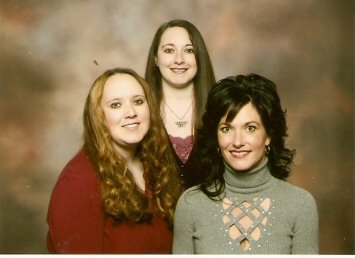
Any discussion of wealth should include a few words on the subject of my own financial achievements. Having accumulated enormous amounts of cash, I,George H. Fulks, have buried most of my money in fruit jars with Mason lids. I can't recall where I've buried the cash but it's in hundreds of places.
Into a discussion with my banker, related to me was: "George, your neighbors are observing you as you bury your money. They're placing it into their savings accounts and investing part of it in the stockmarket. You should stop placing your money in fruit jars. It's just not safe there."
In response to the banker's comments, I made a very simple statement: "Duh!"
Seriously, my descendanta should be informed that this researcher retired from teaching during the 1993-94 school term. Teaching in a school unit located within the cornbelt of Central Illinois was a buffer protecting my family and me from dangerous encounters with lawless elements. In only a few instances were criminal
elements disguised and active.
For much of my life, I've dwelled near cattle, hogs, fields of hay, soybeans, and corn "as high as an elephant's eye."(From the musical Oklahoma by Rogers and Hammerstein)
And I loved the farm country.) Earning enough as a teacher to live comfortably, I am able to visit the larger cities and cultural centers; but not often or for long. Having the good fortune of working in one of the best school districts in the region, I was very rarely abused by my students or co-workers. Never physically assaulted, rarely
verbally abused, and vandalized occasionally by adult inhabitants, the farming community would not tolerate a state of anarchy within their domain. The lessons taught were by example.
"You'll never be a man, George. You'll always be just a little boy."
Shown in the photo, snapped on 23 August 2008 are Jade Parish and George Harold
Fulks.(age 68>born 6-3-1940)Jade Parish is a Granddaughter. She is five years old.
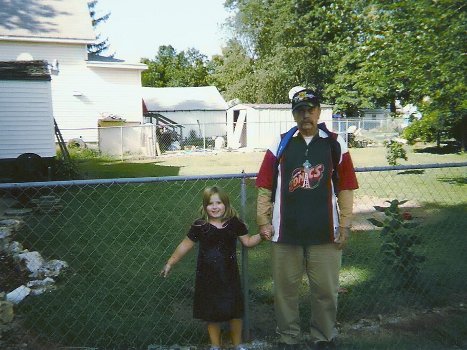
Important to mention is that twelve or more hogs and a hog pond were on the Carie Pinegar Fulks farm. This fact is noted for reason that this is to be the subject of another story to be posted later on my site. Hand-dug by my uncle Herbert Buford Fulks, the pond was situated some seventy-five yards across the gravel road; adjacent to the barn and near a natural drainage area. In that location none of the water in the cistern would become contaminated by the waste produced by the hogs. Copperhead and timber-rattlesnakes were often sited near that area. When a child, I was instructed to be especially observant when walking in that vicinity. In time, I learned not to become terrified when meeting animals and reptiles. I've learned to respect all the Earth's creatures. They've been merciful and they are among the things I love.
By traveling three miles west from Grandmother Carie's farm, one could have fished from the banks of the beautiful, blue waters of the Tennessee River but by 1941 Kentucky Dam had been completed. The largest man made lake in the world had been impounded. Created by the Tennessee Valley Authority and The U.S. Army Corps of Engineers; even those who had lost land and forced to relocate were awed by its coming.
Grandmother Carie Fulks and her family had moved from near Birmingham, Kentucky to the farm five miles Northeast of Golden Pond. Life there in Lyon and Trigg County was in for a change. "The Jackson Purchase Rural Electric Co-operative" was begun and slowly;rural Kentuckians began to wire their homes for electricity. My dad Rummage Ira wired Grandmother's house in the year 1951. It wasn't long until she had electrical appliances. There was even a television set.(The years to which I refer are 1951-59.
Remaining dry and still intact was the Henry Jackson Fulks landgrant, but all the Fulks' had moved from there. The flooding of Birmingham , TVA's purchase of Star Lime Works, and much of the bordering land soon severed
major arterties leading to important marketplaces. Grandmother and her husband Mandard sold the land in Lyon County to the TVA and
purchased 180 acres in Trigg County near Golden Pond. While at that location from
1940 until 1959, a store was five miles away, and the Cumberland River lay at least three miles to their east.
Important to record here is that "Maurie Watkin's Traveling Store" visited the area once each week- usually on Wednesdays. Peddling an unbelievable variety of items needed by those stranded in the countryside, life would have been extremely difficult for many. Whenever people needed credit, it was available. Grandmother never failed to repay Maurie. He knew
exactly what the people needed from fruitjars and lids to bologna. Maurie Watkins operated his traveling store(the huckster) from his grocery and gas station located
near Smith Bay in Lyon County. Maurie's love and dedication to the people residing "between the rivers" was admirable. There was another man who was devoutly anti-socialist.
Another great technological achievement (Barkley Dam and Lake) appeared as a
result of the work and planning of the TVA and the U.S. Army Corps of Engineers. The size and difficulty of
the projects and the costs of those modern miracles made the poor and the anti-socialists shutter in their footsteps.The costs were into "billions of dollars." "It's the end of our private ownership, our freedom and our farms. It's the end of our style of life" said the people. For many that was true.
Such transitions as these are a matter of planning for the future and sacrificing
for the nation's people; from subsistent to more sophisticated methods in living. That's one way to state the situation. That was socialism but the nation needed electrical energy to become a modern nation.
As the author of this account, I am neither friend or foe to the policies that resulted in those events. I, as a child and into adulthood, observed that book unfold.Here I sit fairly comfortably; not as a dog that would attack its master after its feeding. There was little that any of us could do to stop the emmergence into socialism. One must continue his loyalty to his country and to his
group. That's a requirement for American citizenship. I loved the old-time life, its ways and its peace but I was not required to t perform the hardwork necessary for that lifestyle. I had to be cared-for as a child and teenager. More useful would have been a good dog.
Appearing personally for dedication of the Barkley Lake and Dam Project was President Lyndon B. Johnson during the autumn of 1965 and it was a workday for me.
Morale supporters had assisted me in attaining a teaching job in Livingston County. Jobs were hard to find in 1965.I had just completed three years of honorable military service and employment that paid satisfactorily was difficult to attain without help from friends and politicians. As I entered my automobile to drive away to the highschool at which I was employed, I was able to catch a small part of President Johnson's speech.
The Viet Nam Conflict has commenced and the television news turned my opinion against American involvement in an area so distant as Southeast Asia. Not joining any of the protests, I was extremely disturbed in seeing our brothers and sisters kill and maim each other in large numbers. The final outcome for me is that I firmly believe in the concept of purification. If humans are to behave in that manner, the Earth would be improved should it immediately become a huge stone with
nothing resting on it. I shall die with that feeling. Woe is me.

Sara Elizabeth Depriest (Known by my sisters as "Grandma Betty")Sara Elizabeth
Depriest was often the subject of conversation among my kindred. The mother of Carie
Dell Pinegar Fulks, Grandma Betty married Benjamin Pinegar in 1876. Producing six children, the offspring are as listed: (1)Deaner Idail<1878-1903>; (2)Vollie Ira<1880-1901>; (3)Nay Dyer<1884-1962>; (4)Josephene Pinegar<1886-1950>; (5)Carie Atlantic Gertie Dell Pinegar<1888-1959>; (6)Lalus Martin Pinnegar<1890-1961>.Within
the opening image of "Old Ironton School:1900" are to be found Deaner, Vollie, Nay Dyer, Josephene, Carie and Lalus.
Benjamim Pinegar (b1857 d1887)
Sara Elizabeth Depriest Pinegar (b 2-9-1857 d 3-3-1940)
I, George Harold Fulks, am especially grateful for the use and availability of "The Descendants of William Jackson Pinegar File" for clarifying some of the important information in my study of the Fulks and Pinegar families. At this point in my writing and research, it has been determined that Lalus Martin Pinegar, Betty's youngest son, was born after the death of his father, Behjamin Pinegar. My ggmother had no other children.
Important
to note:(1) the father of Sara "Betty" Depriest was Simpson Depriest; (2) Ggmother Sara deceased during March, 1940. I, George Harold Fulks, was born June 3, 1940 at
Star Lime Works, Lyon County Kentucky; not far from Birmingham; (3)All remnants of Birmingham are now submerged beneath Kentucky Lake.
An account by Great-grandmother Betty Pinegar: "It was during late September of
1863 that my mother and all her children were sitting, talking and
romping about the front yard near our home in Trigg County, Kentucky.
We lived within walking distance of Ironton. We were startled and excited as we noticed a squad of Union cavalry emerging from a woods."
"All of us gathered together and cordially greeted the soldiers. All the cavalrymen politely tipped their hats. Both the Captain and his mount bowed to us and said "hi-dee, mam." Then dismounting his horse and holding its reins, the squad captain walked over to where I was standing and patted me gently on my head and said, "you sure are a pretty, little girl." (That was surely a memorable incident from the view of a small child such as Sara Elizabeth. She might have reminded the captain of his own daughter far away and that he might never see her again>)From what I've read, the Union
had a permanent camp at Smithland for controlling the point at where the Cumberland,
Ohio and Tennessee
Rivers converge.)
Never having the experience of meeting my great-grandmother, Sara Elizabeth Depriest; she is described by my sister Dorcas as being very petite. "She was a light-haired and blue-eyed lady with a very gentle disposition," said my sister.
Back to Golden Pond
Working a farm one-half-mile east of my grandmother Carie were Bill and Eulah Holland. Caring for two physically handicapped children, Bertha and Samuel; the Hollands were Grandmother Carie's close friends and neighbors. Unable to assist with the most difficult work on the farm, the two were mostly dependent upon Bill and Eulah, their parents. It was fortunate for the Rummage Ira Fulks family that Rex, the Holland's son, was manager of Kentucky Woodlands Wildlife Refuge. Rex managed a large game
and forest preserve that lay within the counties of Lyon and Trigg and he helped my dad secure employment in the civil service.
As for Bill Holland, Rex's father, hewould travel ten miles round-trip to Golden Pond
by horse and wagon when necessary. At Golden Pond was a well-stocked grocery store and a market for some of the items Bill had produced on his farm.
Fiercely anti-socialist, Bill Holland was a proud farmer who valued his independence above all other considerations. An extremely dedicated laborer, Bill showed a contempt for anyone not man enough to do farmwork in the old and difficult style.(horse or mule with a sangle harrow) As one who seemed to love labor and independence; when discussing the government, he would proclaim. "You never win with them.
You always lose; no matter what you do." Some men do love labor and there are certain types of labor that I enjoy.
Owning a large farm one-quarter-mile in the direction of the Tennessee River
and toward Golden Pond were Carl Fennel, his wife and their daughter, Dorthy Nell . Having tractor, planter, and tiller, Carl was one of the most successful farmers along Crooked Creek for reason of his mechanization. Carl and his family had some time and money
for leisure. Corn, his primary crop, needed to be
detasseled and picked by hand. What was shelled would be done by a handturned device. Having no grain
elevator no elevator for storage or drying; what was saved stayed in a corncrib and was subject to invasions by rats.
Uncle Herbert Buford Fulks was usually one of the
men who assisted with such tasks. He'd work for a time, become exhausted and walk away, angrily. That was his local reputation. Uncle Herb would buy whiskey with the money he had earned. Uncle Herbert was a friend to me, and I did not attempt to be judgemental. As a child, I could not comprehend his need for whiskey, and no-one could successfully intervene in his decision to find and purchase whiskey. Those suffering brain damage may show strange patterns of behavior. I forgive him. What he did, in the form of misbehavior, is forgiven. Uncle Herbert is now deceased, and I often inquire- "what talk will there be about about me after I've been placed in a cemetary?" He was really kind and decent to me, his nephew.(My burial shoes are in
a secure place and "spitshined." Those are the most important part of of my burial attire.)
Eighty acres or perhaps one-hundred on the Carie Fulks farm were sharecropped
with Carl Fennell. Carl was most certainly a successful farmer and was able to handle the stress of living in an area where some of the area youth suffered
from loss of ambition and had basically lost hope of ever escaping poverty and hardship. His attitude made it possible for him to sell his land to the TVA and to move from Route 2, Golden Pond to another farm in Callaway County when forced to do so. All had a good opinion of Carl Fennel and his family. All were resigned to watch him succeed without working so hard.
The common term "puppy-love" would not accurately describe the emotional state
associated with my having met Carl's daughter, Dorthy Nell Fennell. Here was one seven- year- old boy captured by her beautiful,dark hair and eyes. She was absolutely georgous; and personality gifted. That is a trait exemplifying many young ladies of rural America and the farm. As a child, I loved each and every bit of her. Having knowledge of that fact, she was free to choose her company and mate. Dorthy Nell did not choose me. When the Fulks family visited
Kentucky, my Aunt Avel taunted me in knowledge of my attraction to that farmer's daughter. Dorthy Nell and family had
decided early that I wouldn't be in their family. There's a true heartbreak among many
others that followed."You'll never a man, George. You'll always be just a little boy."
Just happened to run-across the obituary for Dorthy Nell Fennel Bland in July 2009. That obituary has been posted near the end of this research session.
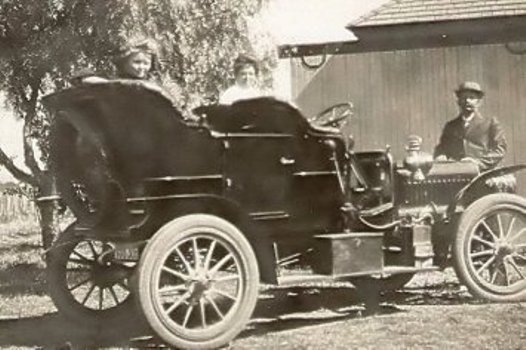
A unique story I'd like to share is as follows:When in his early twenties, my father, Rummage Ira Fulks, worked and resided on the farm owned by Henry Jackson Fulks II. A frequent visitor to the Jennie Ridge area prior to Carie Fulks' purchase of a farm near Golden Pond, his vehicle was an older model Cheverolet from which the doors and top had been removed.(Just saw it recently from "Franklin Mint" in model-form. It was a 1911 model.) It was near darkness and my dad,
Rummage Ira Fulks, was en route to visit Carl Fennell. Dad's brakes failed on the old
Chevy at forty mph. In order to avoid crashing directly into the Fennel residence
located at the bottom of a hill from a probable 60 degree incline, it became necessary that my dad negotiate a complete 90 degree turn to the left. Attaining fifty mph with the help of gravity and enertia, he attempted a left turn onto the gravel road
that led east. Penetrating a stock fence to the left of the Fennels' house and overturning within a drainage ditch, my dad was thrown clear of his vehicle and uninjured. Sleeping the remainder of that night at the Fennel's house, I've always
tried to imagine what conversation might have occurred immediately following that incident. Listening to my dad share that story would frighten me when I was a child.
In sharing that incident, his exact words were: "I was lucky I wasn't killed or injured there. I'll recover that car someday and overhaul it." He never tried to retrieve or overhaul that vehicle but for all of us, it stayed there for years and was a landmark symbolic of a wild and previous era in the life of Rummage Ira Fulks. It could still be there rusting away and only I can shared the story.
I am told that during "The Great American Depression, large numbers of destitute people became entrapped within an American Dark Age. People tell that there were hobo-jungles, wandering people and rides were stolen on freight trains.(Born on June 3, 1940, that period of American history was near its climax but our
nations recovered in the most horrible way; a world war.)
There was plenty of whiskey during the time of Prohibition and in my dad's youth and adulthood. Dad shared with me the reasons he did not drink whiskey. Dad said,"Son, I don't drink whiskey. I've seen the way
people behave when they've had too much of it. Too much of it will kill anyone. My
daddy drank himself to death. He was a really nice person when sober and all hell when drunk."
A portion of the entertainment I received from Uncle Herbert Buford Fulks during
my youth were his re-enactments of army drill practice. There were salutes, come to
attention, port arms, right and left shoulder arms, about face and at ease. It's a sure thing that by time I had reached aged 10, I was familiar with most of the drilling fundamentals used in the military. Enlisting in 1962, I shut both eyes in preparation for a good nights' sleep within the barracks shared by other raw recruits at
Fort Jackson, South Carolina. Lights were out in our barracks. A giant in size 16 boots tromped down the center isle for bedcheck. Did you see little-old-me hide my
head under the cover? "Tromp! Tromp! Tromp! Tromp!" The foundation is placed on stilts and the structure is trembling. One recruit escaped that
night and I've always asked what happened to him. I served three years.(The Army chow was excellent.)
Commence next edit here.
It was 1939 in Kentucky, and Grandmother Carie and her husband Mandard had moved from Henry Jackson Fulks II's former farm in Lyon County, and Rummage Ira Fulks had moved his wife and children to an area not far from what is now Craven's
Bay and near the Old Eddyville Ferry. Across a road from a large cemetery, my father
had bought five acres and had constructed a very sturdy house there but it was difficult to heat in cold temperatures and uninsulated in both the interior and exterior.
Raising some hogs, poultry, and a single goose on the five acres, that was as much of farming as my dad wanted. "Farming is the hardest work that anyone can do."
said my dad. "I just don't want to spend my life working that hard. The price of corn is 25 cents a bushel- shelled.
A long-time and loyal member of The Masonic Lodge at Eddy-Kuttawa and a confirmed Republican, my father had, through experience, learned of the importance
of dealing politically influential people. If one wishes to know what this writer considers the truth, the word "politics" is synonomous with friendship. Without politicians and politics itself, the result is a state of confusion known as "anarchy." Someone must be village president, commissioner, governor, president, or king.
to vote and remain loyal to ones party within the United States of America. In a
narrow sense, I feel that Rummage Ira Fulks had entered into an oral contract to support those in political control during those times. It might be said that he was
informed and politically educated. Dad was especially loyal and proud of Abraham Lincoln and his Kentucky origin. Lincoln himself was self-educated and had come-up the most difficult way;consistency and hard labor.Teaching me to love the games of football,baseball, boxing, and basketball, I never gained the size and stature to be an outstanding sportsman, but I do admire all of the college teams; especially Notre Dame. They always seem to exemplify the
highest of enthusiasm and spirit with their teams. One might say that during those times, atheletes, cowboys, and soldiers served as role models for boys.
Sisters Euphama, Dorcas, Betty Jean, and Alice Faye attended one room schools
while residing near Eddyville, Kentucky. Walking one-half mile to the Old Eddyville
Ferry and crossing the Cumberland River to a highschool in that city, Betty, Dorcas, and Euphama began highschool at Eddyville. Alice Faye, the youngest of the Fulks sisters, continued to walk one-half mile to Old Wake School. She was a second grader in 1944, we were making preparations to move to the State of Georgia.
My dad and I were somewhat placed very early into The Secret Life Of J. Walter Mitty sphere.short story by James ThurberNot a day passes that I'm not for a time, a hero- a voyager on a spaceship, the final strikeout of the baseball "World Series," a winning touchdown? and sometimes even Melissa Sue's escort in our luxurious Cadilac or Mercedes.Ho!Ho!Hum! Dad and I were not out-of-luck with sports. Dad loved to hunt quail with his dog. As his son, I was able to catch fish,play touch football, and hit an "alley-oop" when playing baseball on a vacant lot somewhere. Dad tried out for the Cardinals, but could'nt run the bases speedily as required in the major leagues Neither could I, his son."I once struck-
out eighteen batters," my dad would relay to me.
Employed as a correctional office on the night shift at Kentucky Pen near Eddyville for at least one year, the pay for Rummage Ira Fulks was $80 monthly.
he and another man owned and worked a musseling rig. The two harvested mussels in the Tennessee River for a while near the recently constructed Kentucky Dam. During those times(1940's), Mussel shells brought $25 a ton. Flesh removed from those shells was useful as hogfood. Dad's swine remained obese by this manner. Success at musseling declined. The Kentucky Dam had somehow destroyed their breeding grounds. Musseling was no longer profitable, and most Western Kentuckies stopped their efforts.
"Rum," said Rex Holland, manager of Kentucky Woodland Wildlife Refuge, " the next governor of Kentucky will be a Democrat. All of you Republicans are going to be
fired. You have a large family, and I,ll help you get on with the Fish and Wildlife
Service. If you want to come down to the Refuge Headquarters, we'll fill out an application together. One man is retiring, and we need to replace him.
Remaining friends with Rex Holland, Bill Holland's son, resulted in dividends for Rummage Ira Fulks.
Deprived of education beyond fifth grade, it was necessary that dad resume some of the responsibilities of farm labor early in his life. Cast into that same role was his brother, Seamer M. Fulks. Finding farming extremely difficult labor, those two boys became depleted at an early age. Farming without mechanization was such difficult work that children would have to be whipped in order to keep them in a field all day. Third, fourth, and fifth graders many were. Runaways at early age were common. Uncle Hardie Fulks ran away to New Mexico and found work there in a silver mine.("Farming is the hardest work there is. It's absolutely backbreaking.") (Rummage Ira Fulks)
Bill, Rex's father; while remaining a strong anti-socialist, had retained his
independence for a time by farming and the hard labor associated with agriculture.
Determininfg the importance of having a working relationship with strong politicians, Bill's son Rex assisted Rummage Ira Fulks in finding employed that might eventually lead to some certainty as to the future security of his family and
him.
Paying eighty-dollar twice monthly, the work on the refuge required a five day,
eight hour shift, would provide medical benefits, thirty days of paid annual leave
each year, and a pension after so-much time in the civil service. The U.S. Government would also pay moving expenses should any employee be transferred to another refuge. He would not be fired if the party in power changed from Republican
to Democratic.
In regard to primitive farming without use of modern farm machinery, Rex exclaimed, "Making a living should not be that difficult, Rum. My daddy and mother
have worked themselves to death farming that way, and they're still poor. People can't make-it in farming that way. I'm not even going to try."
Letters
Thoughout the time Rummage and his family lived on wildlife refuges in Georgia, many letters were exchanged between my mother and Carie Fulks- all bearing the same return address. Route 2, Golden Pond, Kentucky.
This writer, her Grandson, learned to read those letters. We all appreciated the work of the rural mailcarrier and forever delighted in the pleasure of receiving a friendly letter from my grandmother.
Threshold was September 22,2006 and Friday, 11:00 A.M. Graveside services were held at East End Cemetary(Cadiz, Kentucky) for my mother, Ella Belle Abbott Fulks. Placed beside my father and her husband, Rummage Ira Fulks,(d 1990)
Ella, my mother, was a quiet and dedicated mother. Among the mourners standing near the Fulks family were our lifelong friends, the Colsons. There were Howard, Bobby, and Lou Nell. William, my half-brother, had died in an automobile accident during the 1960's; so he was absent.
That day chosen for Ella Belle Fulks' funeral was rainy and stormy. The heavy downpour paused for just enough time to have the funeral. As the preacher ended the services, a huge hole opened through the sky and the sun appeared for the first time
that day. "In my father's house are many mansions" were his final words. We had known that our mother would decease. We just dreaded the time that would come.
Dark-haired and black-eyed, Lillian Colson was a charming and beautiful woman. Inspiring and memorable were her generousity, dedication as mother to her children and many friends. Lillian was heartbroken upon the death of my father, Rummage Ira Fulks. Holding her head down solemnly during funeral services for my dad, Lillian is also deceased.(2004) Lillian's love of people was always evident by her show of unselfishness, friendliness, kindness, and gentleness.
Lillian's children were Howard, William, Bobby, and Lou Nell Colson. Howard, Willian, and Lou Nell. Those four remained good friends of the Fulks family throughout my lifetime.
Especially important for me to record for future historians is that adorning
the barnlot and pasture of the Colsons' small farm was a very fine horse and an old-time
buggy with a metal wheel that was beyond repair. A traveler both the horse and scurry with
Lillian Colson's permission. It was the finest scurry available
and had been pulled by a horse that hinted that those had been the property of a wealthy man.According to the children and Lillian; long ago, a man had come onto their homestead with the stipulation:"Will you allow me to leave the horse and scurry here in your barnyard? I'll return for them later."
walking toward Golden Pond; the man was never seen again.
It is now that I am of age and I am certain that our friends, the Colsons, would not be injured by my contrivation of an explanation of the previous horse and
scurry event. Could the truth have been that Lillian had been an orphan living in an
institution and that the man who had lived with her and her children had assisted Lillian in escaping from an orphanage? The man mentioned was called "pappy", but his real name was Issac Newton who lived with Lillian and her children until his death in
the early 1950's.
Along Crooked Creek and easterly in the direction of the Cumberland River with
a reference point centered at the farm of Carie Dell Pinegar Fulks lay Ferguson Springs. There were actually two springs- one fed by naturally running water from a limestone
hillside and another across the creek on John and Liza Ferguson's farm. Both springs were a source of crystal-clear water. A frequent stopping place for both locals and travelers, the entire area provided a perfect setting for picnics and cooling off during humid days.(The spring located on the Ferguson's farm was a bubbling spring and contained small red-eyed bass.)
John and Liza Ferguson's farm which had those two springs and its springs suggested that a limestone cavern was somewhere near, but none was located.
A large orchard of June apples, a one-roomed school, a Baptist church and
other opportunities available at Ferguson Springs would leave one with the impression that here was one of the true "wonders of the world."
Fishing in some of the backwater of the Cumberland River at the John and Liza
Ferguson's farm with Johnny and Robert Ingram provided for me several days of leisure during our visits to Grandmother Carie Pinegar's Route 2, Golden Pond, Kentucky address. Fishing with cane pole within Miss Liza Ferguson's slough (an area of water remaining after river flood-waters have
subsided), we could enter onto their farm with redworm bait and our canepoles. Johnny, Robert, and I were occupied for most of those days filling our strings with
with catfish, sunperch, bluegill, buffalo,
and carp.
(It's the end for George.)Ending my childhood and associations with the residents there on Jennie Ridge near Golden Pond, Kentucky was my highschool graduation and entry into college for the summer semester of 1958. Never again was I
to see Uncle Herbert Buford Fulks or my grandmother Carie Dell Pinegar Fulks. No longer a wild thing, this writer had chosen to pursue a strenuous college schedule; leaving
little time for play. College was the commencement of a dream. Resulting from those "thirst for knowledge experiences" were that a personality emerged not attuned to what might be considered natural. Alienation from strong family ties and friendships of past seemed to fade away into a shadowy area somewhere; never to be experienced again.
It is very sad that Bill Holland's daughter Vergie drowned in Crooked Creek during the summer of 1957; and during that winter or cold Autumn, his son Samuel Holland
succumbed to a campfire that had set his clothing on fire as he was gathering wood to burn in a stove. Both Samuel and his sister Vergie were handicapped physically and mentally, but the two had always been cordial. Those were friends of mine.
In 1959, my Grandmother Carie Dell Pinegar Fulks deceased, and Uncle Herbert
Buford Fulks was placed in a Tennessee Veteran's hospital where he lived the remainder of his life.deceased 1969
Following the death Grandmother Carie Pinegar Fulks(1959), her farm laying in the shadows of Jennie Ridge and Trigg County Kentucky was sold at auction to settle estate. The purchaser, a speculator, possessed that farm for a brief time. That buyer sold to the Tennessee Valley AuthorityThe
former Mattie Mandard and Carie Fulks property is now a part of "Land
Between the Lakes Recreation Area" A modern map of that vicinity indicates that the TVA keeps a herd of bison where the farm had been. .
Taking a few of her personal belongings and a share of Grandmother's estate, Aunt Avel Fulks moved to Alton, Illinois and was married to a lifelong friend, Woodrow Bannister.
Among Aunt Avel Fulks' health problems were diabeties, irregular heartbeat, and
weak muscular use. She could not lift heavy objects; restricted by her personal care physician to 25 pounds or less. Approximately twenty pounds overweight, my aunt
was not into physical conditioning.
If I were you, the reader, I'd visit the public library immediately and read The
Three Little Pigs. If a wolf should come to your door, scratching and begging; I'd
allow it to enter and sit beside the stove or fire with you. The wolf may be cold and hungry. By treating such a beast
kindly, it may become your friend. I'd do just that, if I were you.
This writer has written no books. None of his recent compositions have been published, but this researcher has served as advisor to every American president since Harry Truman. My advice has been within the nature of "if I were You." Very few have been of higher intelligence. My advice is seldom heeded. George Bush refused to kiss a bull moose. The children in the state of Maine also refused that advice. The neighbor mowed his grass when it didn't need it,
and a man entered into the local grocery; refusing to purchase and bake a sweet potatoe. If people would follow my advice, there would be a better world.
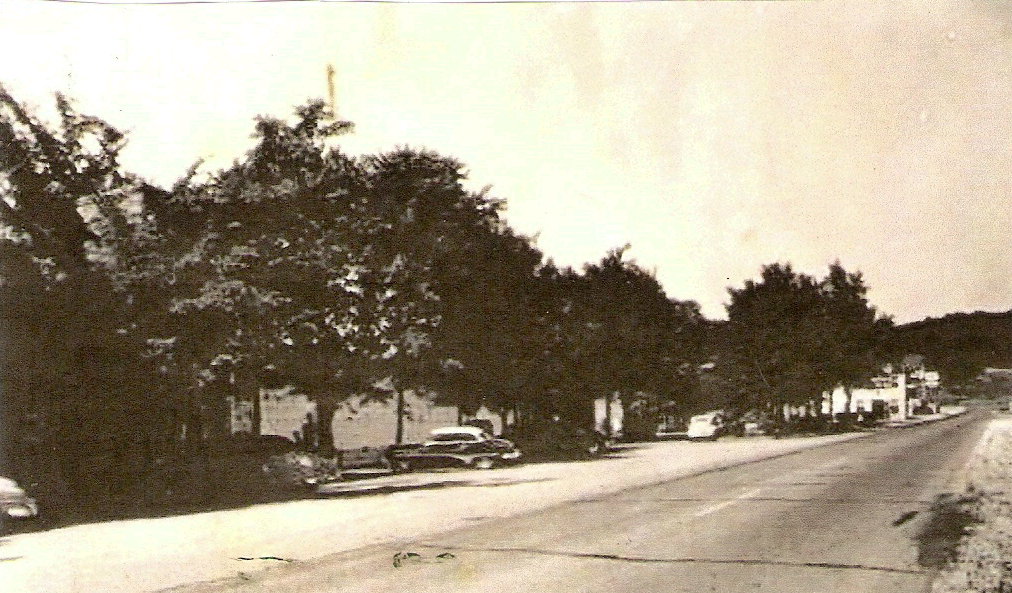
Scan of Golden Pond, Kentucky/from July 2009/compliments of
LBL site/Gibbs
Henry Jackson Fulks II and his wife Nancy Emiline Mitchell were married during October of 1863. Born September 3, 1842, my greatgrandfather Henry Jackson
Fulks II deceased on August 10 1924. Henry II's father was born in Virginia in 1804 and deceased during 1872. Henry Jackson Fulks I's wife was Polly Newby; born 1807 and deceased during 1855. Polly's father was Solomon Newby.
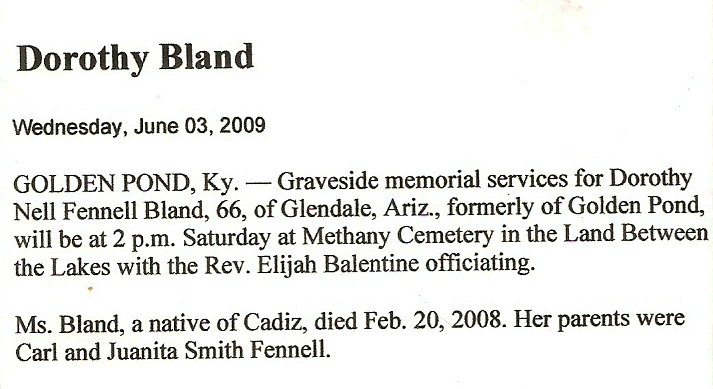
Henry Jackson Fulks II's wife, Nancy Emiline Mitchell was a daughter of James and
Mary Mitchell; and my greatgrandmother Nancy was born on May 1, 1841 and deceased on
May 5, 1911.